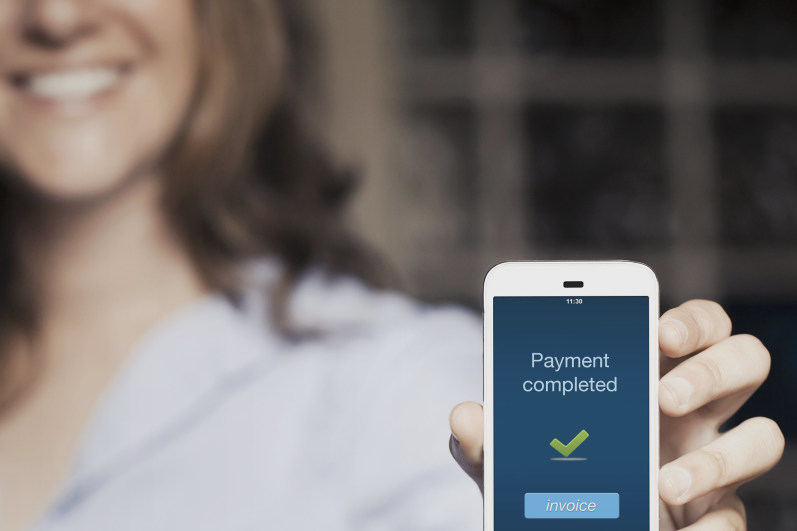Imagine the utility of a smartphone whose tap-to-pay digital wallet or pre-installed credit card not only make it easy to purchase tickets, upgrades and other travel items, but also digitally stores other critical data: passport info, driver’s license, loyalty program membership, boarding pass, credit card/payment information, ATM access, baggage claim confirmation, rental car rewards program and reservation, hotel reservation and room key, fitness club membership and more.
At several airports across the globe, new biometric technologies are being tested to verify passengers' identities via facial recognition software, iris scans and fingerprints – unique pieces of data that feed into so-called "digital passports."
The gradual adoption of these biometrics by airports, airlines and security officials – and their gradual acceptance by travelers – represent one more step toward a future where smartphones and digital devices will handle the majority of interactions and transactions involved in travel – including mobile selling and payments.
Consumers' concerns about the security of mobile payments are likely to ease, in fact, when their smartphones contain all of the information they need to travel – payment- related and non-payment data that has been stored, verified, biometrically authenticated and cross-checked against other sources.
The biometrics benefit: convenience and security
Imagine the utility of a smartphone whose tap-to-pay digital wallet or pre-installed credit card not only make it easy to purchase tickets, upgrades and other travel items, but also digitally stores other critical data: passport info, driver's license, loyalty program membership, boarding pass, credit card/payment information, ATM access, baggage claim confirmation, rental car rewards program and reservation, hotel reservation and room key, fitness club membership and more.
The dual benefits of convenience and security will provide a key tipping point for greater use of solutions like Android Pay, Apple Pay, PayPal, Alipay, WeChat Pay, Paytm and M-Pesa for travelers around the world.
Even though the near field communication (NFC) technology that enables mobile payments from a smartphone has been available for more than a decade, the act of pulling out a smartphone to pay for purchases is still equally convenient as pulling out a plastic payment card.
Consumers' concerns about the safety of mobile payments have constrained widespread adoption, except in mobile-forward countries such as China, India and Malaysia. A late 2016 Ingenico-NTT DATA survey found that half of global consumers consider mobile payments to be less secure than cash.
But existing security concerns are likely to ease – and adoption of mobile payment solutions will rise – when passengers realize that they no longer have to carry cards, keys, print-outs and documents in their travel bags, suitcases and wallets.
Uniquely digital passenger IDs
Instead, biometric and digitalized data from other sources can be stored conveniently and securely on smartphones and other digital devices.
To ensure that mobile payments are protected from hacking and cyber theft, robust payments platforms can create unique passenger IDs that combine biometric data with other inputs, including geolocation data, IP address, previous payment authorizations, user name, phone number, address, device fingerprint, user history and other sources. Built-in verification and authentication methods can complete the purchase and create an audit trail.
And with proper security measures in place by device manufacturers, financial institutions and other partners, lost or stolen smartphones can be easily tracked through the cloud and their data wiped clean remotely, reassuring owners that their digital information is safe.
Paving the way operationally
For everyone involved in travel, biometrically-enabled payments address a common goal: less time, fewer physical interaction points and less stress involved in day-of-travel activities, including security checkpoints, baggage tracking, customs approvals, travel purchases and customer service.
The day-of-travel experience is already pre-integrated into many contracts and agreements between travel providers and their vendors in the form of service agreements. These agreements often include specific operational metrics, such as pre-defined goals for processing passengers conveniently and quickly within a pre-defined time frame (e.g., X thousand passengers an hour). Biometrics can ensure that those pre-determined goals are met.
One example: In September 2017, Dubai Airport will test a "gate-less border." The initiative combines three-dimensional scans of passengers' faces with facial recognition software and other data sources to create a pre-approved, fully digital passport that can be verified in real time as arriving passengers walk to the baggage claim area.
These kinds of implementations shorten lines, reduce wait times and smooth the entire day-of-travel experience for all involved parties – airport and airline employees, payment processors, security and customs officials, and passengers themselves.
Technology flexibility and integration
For everything to work smoothly, of course, the databases and platforms that power multiple activities – reservations, bookings, payments, customer service and other – must stay current with each new innovation, technology and breakthrough. New technologies must be integrated quickly and securely into customer-facing interfaces – with as little disruption as possible to the flow of revenues and the stream of passengers.
Every new technology takes time to evolve and find its place, and mobile payment technologies certainly fit that pattern. Adoption will pick up speed over the next several years, aided by the arrival of biometric technologies and their ability to deliver the transactional convenience, speed and security that passengers and transportation provider seek.
Kristian Gjerding is CEO of CellPoint Mobile, a provider of mobile-first solutions. His firm makes travel easier for airlines, transportation providers, and their customers with solutions that manage the end-to-end flow of interactions and profitable transactions from travelers & mobile devices.

























































































































































































































